Apart from strengthening regional cooperation in West Africa, RECOWA members have proposed education for peace, promotion of intercommunity dialogue, and the development of an inclusive economy as ways to promote a peaceful and conflict-free region.
On education for peace, they launched an urgent appeal to educators in the various West African countries to integrate civic education, mutual acceptance and the peaceful resolution of conflicts more strongly into school curricula.
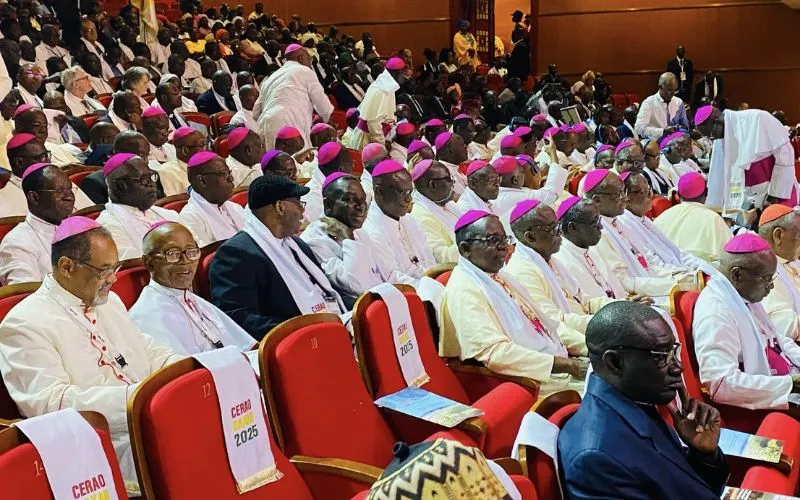 Credit: RECOWA
Credit: RECOWA
About the promotion of intercommunity dialogue, they told West African governments, “We invite you to create spaces for mediation and dialogue between ethnic groups, religions and social groups to diffuse tensions.”
In their statement, RECOWA members underline the need for governments in West Africa to reduce regional and social inequalities by investing in marginalized areas to limit “frustrations” they say could be exploited by violent groups.
(Story continues below)
They further propose that governments in West Africa reform their security sectors, saying, “We are convinced of the need to train defence and security forces in respect for human rights and non-violent conflict management.”
To ease the suffering caused by instability in West Africa, the Catholic Church leaders appeal to communities in the region to welcome the poor, migrants, and victims of terrorism, and to promote fraternity and solidarity without borders.
Realized under the theme, “For a synodal and self-reliant Church at the service of justice and peace in West Africa”, the fifth RECOWA Plenary Assembly was inspired by the Synod on Synodality and by the current situation of the people of God in West Africa.
The Assembly brought together 148 participants who included two Cardinals, 101 Archbishops and Bishops, 27 Priests, five in Consecrated Life and 13 lay faithful.
In their deliberations, the Plenary Assembly delegates envisioned a synodal Church “where all walk together in co-responsibility”.
They have appealed to the people of God in West Africa to renew their way of being Church, “not as a fixed structure, but as a people on the move, listening to the Spirit.”
“It is in this synodal dynamic that we are invited to move forward together, united in diversity, carried by the same faith and the same mission. Every baptized person is called to participate actively in the life of the Church,” RECOWA members say.
In their deliberations during the Plenary Assembly, they envisioned a synodal Church where gifts are shared among local Churches, as well as a self-sustaining Church where resources are generated from within.
In their statement, the Catholic Bishops in West Africa describe a self-sustaining Church as “a Church that embodies remarkable spiritual and organizational maturity.”
Such a Church, they add, “does not depend solely on external support or distant patrons to carry out its mission but relies primarily on the concrete commitment of its members.”
The Catholic Church leaders note that a self-sustaining Church becomes free to adapt its pastoral, social, and economic action to the specific needs of its community.
“However, this independence requires a strong culture of transparency, virtuous management, and sustainable solidarity,” they have said.
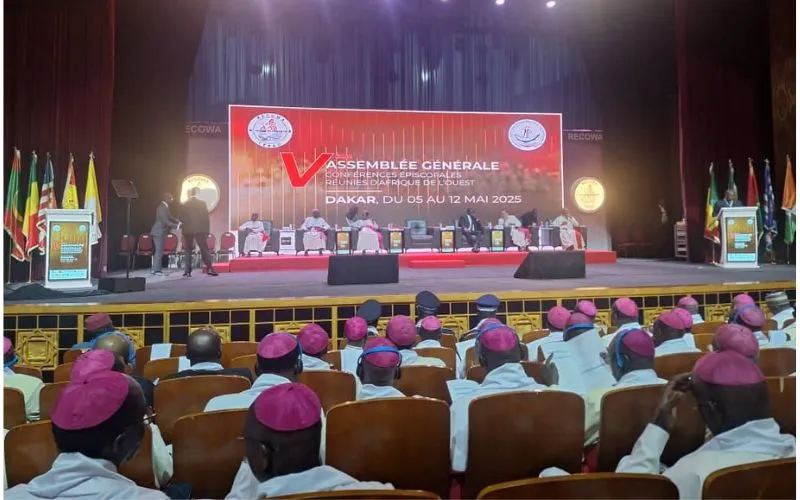 Credit: RECOWA
Credit: RECOWA
In their statement, RECOWA members also laud the May 8 election of Robert Francis Cardinal Prevost as the Catholic Church’s 267th Pontiff, who has taken the Papal name Leo XIV.
“This election is, in our eyes, a sign that the Church continues on its path faithfully, despite the storms,” RECOWA members have said, adding, “This continuity embodies for us the Christian hope that makes us feel that the Holy Spirit always guides the Church, even in times of uncertainty.”
“We wish our Holy Father a fruitful pontificate,” Catholic Bishops in West Africa say about the 69-year-old American-born member of the Order of St. Augustine (OSA), who, in his first address as Pontiff, asked the people of God to help the Church build bridges through dialogue and encounter, working for unity and peace.
Agnes Aineah is a Kenyan journalist with a background in digital and newspaper reporting. She holds a Master of Arts in Digital Journalism from the Aga Khan University, Graduate School of Media and Communications and a Bachelor's Degree in Linguistics, Media and Communications from Kenya's Moi University. Agnes currently serves as a journalist for ACI Africa.
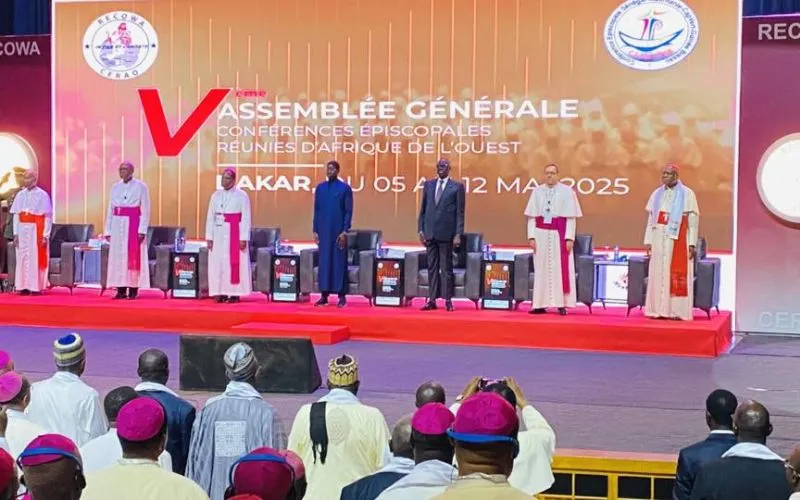 Credit: RECOWA
Credit: RECOWA


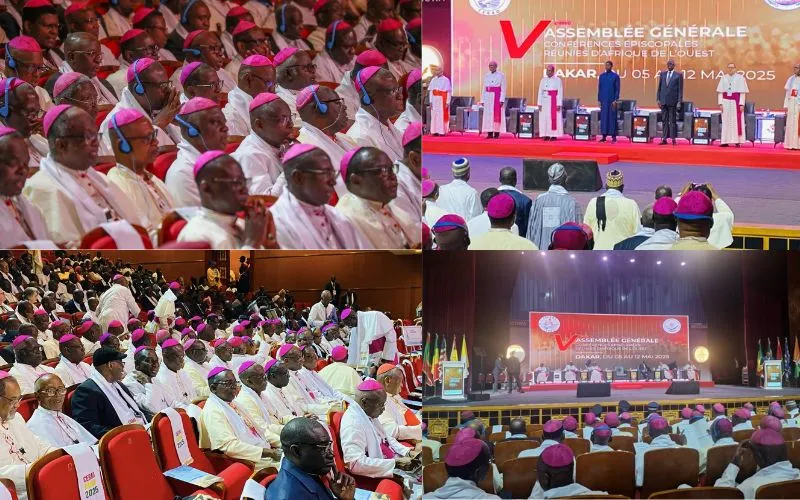

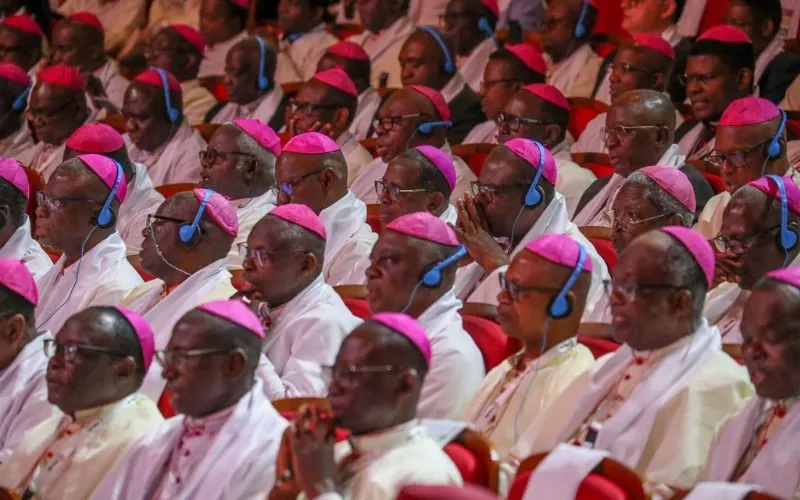 Credit: ACI Africa
Credit: ACI Africa Credit: RECOWA
Credit: RECOWA Credit: RECOWA
Credit: RECOWA


